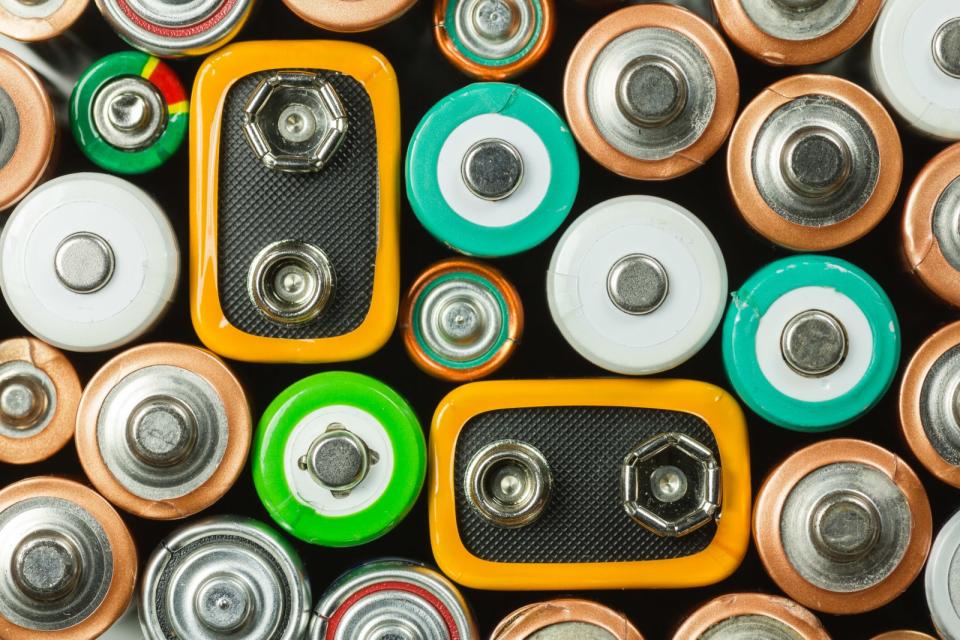Researchers made a battery out of trash
The battery is the latest step in renewable energy storage.
Pursuing more efficient sources of renewable energy has led to many iterations of the battery. But researchers just brought a really interesting new version to the table, one made from potassium ions and trash.
The scientists started with rusty, recycled stainless steel mesh and used a potassium ferrocyanide solution -- which is also used in wine production and in fertilizers -- to dissolve ions out of the mesh's layer of rust. Those ions, including iron and nickel, then combined with other ions in the solution. Together, they formed a salt that clung to the mesh as scaffolded nanocubes that could store and release potassium ions. The movement of potassium ions allows for conductivity, which was boosted with an added coating of oxidized graphite.
Lithium batteries have been the go-to version for renewable energy storage, but lithium is expensive and exists in limited amounts. Plus, lithium batteries have a had a troublesome history of exploding. Sodium-ion batteries have been suggested as an alternative because sodium is plentiful and cheap, two qualities that also apply to the potassium ions used in this study.
Though this battery was just a proof of concept study for the researchers, its specs make it seem pretty successful. It has high capacity, discharge voltage and cycle stability. And its use of recycled materials makes it an especially appealing possibility.



